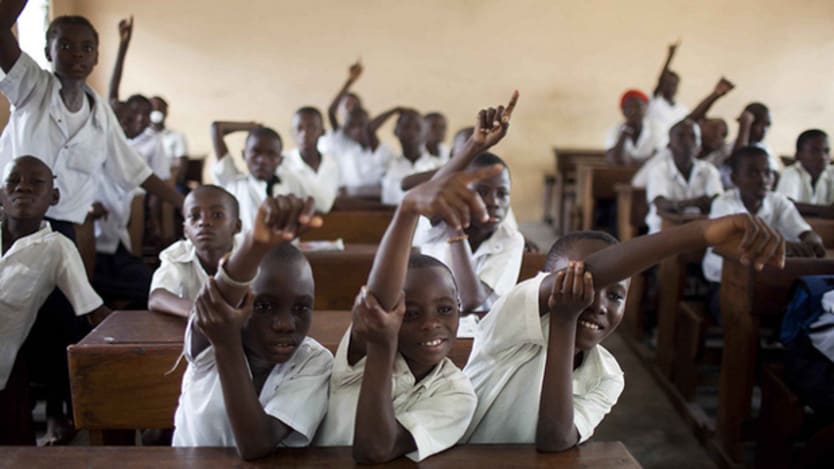
Competitions should be exciting and fair — and provide a sense of accomplishment to lure participants. That intersection between audacious and achievable — that’s where the XPRIZE lives.
“We think very strongly that it’s possible, but we’re never sure until someone wins,” said Matt Keller, who is heading up the nonprofit’s latest challenge: the Global Learning XPRIZE.
The XPRIZE Foundation designs and manages incentivized, public competitions intended to encourage technological development and accelerate the rate of positive change, according to Keller. During New York #GlobalDev Week, the organization launched the Global Learning XPRIZE to challenge teams from around the world to develop open source and scalable software that will enable children in developing countries to teach themselves basic reading, writing and arithmetic.
XPRIZE has made it their business to harness competition to further efforts to improve the world. Not all good ideas can be seen out within the context of a prize, but technology can play a role in addressing this issue of illiteracy, for example.
So while Keller doesn’t know for certain if children can teach themselves and each other to read with the right type of software, he and his team are excited to find out.
“You could do it if you focus the world’s attention on coming up with a solution,” he said.
The worst-case scenario? Nobody wins the prize, but 200 teams spend $500,000 each to win the $15 million prize. Suddenly there are dedicated people spending $100 million dollars on the problem of illiteracy around the world.The best case? Someone comes up with a solution that could change the future of children’s education.
XPRIZE caught the world's attention 10 years ago by putting up a similar prize for the first entrepreneurs to come up with a reusable, privately funded spaceship, and has gone on to challenge others to build a 100 mile-per-gallon car and improve oil cleanup technology, to name a few — all for significant monetary prizes.
“If you just give the that incentive. ... People love to compete; they want to win,” Keller said.
In the case of the Oil Cleanup Challenge, It turns out that the technology being used to clean the BP oil spill in 2010 was the same used in Exxon Valdez spill in 1989.
“The winning team’s technology was 600 percent more efficient and effective,” Keller said. “That’s the kind of thing, if you just get the word out and you challenge the crowd. Because we don't have the solutions.”
Within the first week of opening the Global Learning XPRIZE competition, 120 potential teams from 30 countries signed up — and there are still six months left to apply.
Both the challenge and the prize — at $15 million — are going to attract people’s attention.
Keller expects a larger and varied entry list than other competitions in the past because the barrier to entry is relatively low as a software- and content-based competition.
Read our previous #innov8aid features:
● How technology will shape the future of global development
● With their own money, executives report a sharper focus on innovation
● How to incentivize innovation and collaboration: Lessons from ADB and World Bank
Once the competition begins, teams have 18 months to develop their software and content. XPRIZE will then select the top five teams and deploy their solutions in the field in a yet-to-be-decided country for 18 months. A team will then test the impact that the software had on students’ learning, and that outcome determines the winner.
“At the end of the day, I think people want to be part of something bigger,” Keller said. “This gives them an excuse to say ‘I'm going to dedicate the next couple of years to something meaningful.’”
With the success of crowdsourced solutions, XPRIZE is now looking at a crowdfunding campaign to solicit ideas for their next challenges as well.
You can help shape our coverage on global development innovations. What do you think is an innovative idea? Let us know by leaving a comment below or by emailing news@devex.com.
Search for articles
Most Read
- 1
- 2
- 3
- 4
- 5








